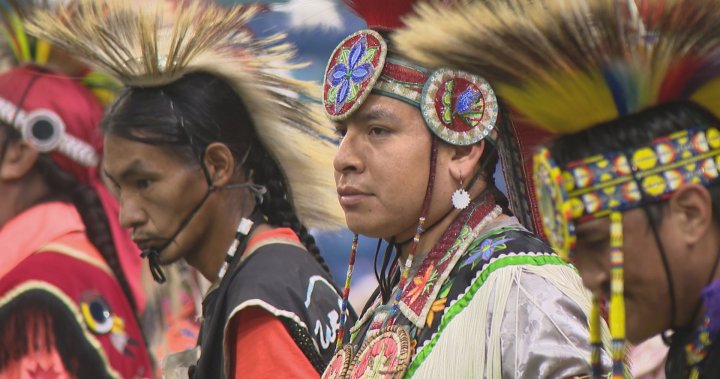On September 30, Canada observes the National Day for Truth and Reconciliation, a day dedicated to reflecting on the country’s dark history with the residential school system. The goal is to honor and remember Indigenous people impacted by these schools and educate those unfamiliar with this chapter in Canadian history. In Saskatchewan, events and discussions involving Indigenous elders, leaders, and community members took place across the province. In Saskatoon, a powwow brought the community together to reflect on and understand Indigenous culture from around the world.
Saskatoon Tribal Chief Mark Arcand emphasized that reconciliation goes beyond token gestures like wearing an orange shirt one day a week. He believes true reconciliation requires accountability and collaboration, not just symbolic acts. The powwow also focused on the ongoing healing needed from the trauma of residential schools and the challenges that lie ahead. The event was also an opportunity for cultural exchange, with a Maori student group from New Zealand sharing their culture and celebrating the connection between First Nations people.
In Regina, despite chilly, rainy weather, residents found various ways to mark the National Day for Truth and Reconciliation, including honor walks, storytelling, and art displays. Education on residential schools is crucial, according to participants like Daniel Stonechild, who emphasized the importance of honoring those who did not make it home. Flags flew at half-mast at the legislative building in Regina to remember survivors of residential schools and those who never returned. An art display at the Regina Public Library responded to a call to action regarding the over-representation of Indigenous people in the justice system, telling stories of the artist’s father’s experience in a residential school.
At the Newo-Yotina Friendship Centre in Regina, a sharing circle was hosted where Jessica Pratt Long-man and others shared stories emphasizing that residential schools are not a part of Indigenous culture, but rather a piece of history that happened. The focus was on highlighting the richness and vibrancy of Indigenous culture that is separate from the dark legacy of residential schools. The Indian Residential Schools Crisis Line is available 24/7 for anyone experiencing pain or distress as a result of their residential school experience. The day served as a moment of reflection, education, and solidarity in recognizing and addressing the impact of residential schools on Indigenous communities in Canada.
The powwow in Saskatoon was a gathering of Indigenous and non-Indigenous people coming together to understand and appreciate Indigenous culture from a global perspective. It served as a reminder of the importance of reconciliation beyond symbolic gestures and the need for ongoing healing from the trauma of residential schools. Participants emphasized the significance of collaborative efforts and accountability in the reconciliation process. The Maori student group from New Zealand added to the cultural exchange, showcasing the interconnectedness of Indigenous communities worldwide and celebrating their shared identities.
In Regina, despite adverse weather conditions, residents engaged in various activities to mark the National Day for Truth and Reconciliation, including honor walks, storytelling, and art displays. The focus was on educating the public about the history and impacts of residential schools, with participants like Daniel Stonechild sharing personal connections to the legacy of these institutions. The art display at the Regina Public Library addressed the over-representation of Indigenous people in the justice system and shared stories of resilience and healing. The sharing circle at the Newo-Yotina Friendship Centre emphasized the separation between the trauma of residential schools and the rich cultural heritage of Indigenous communities.


